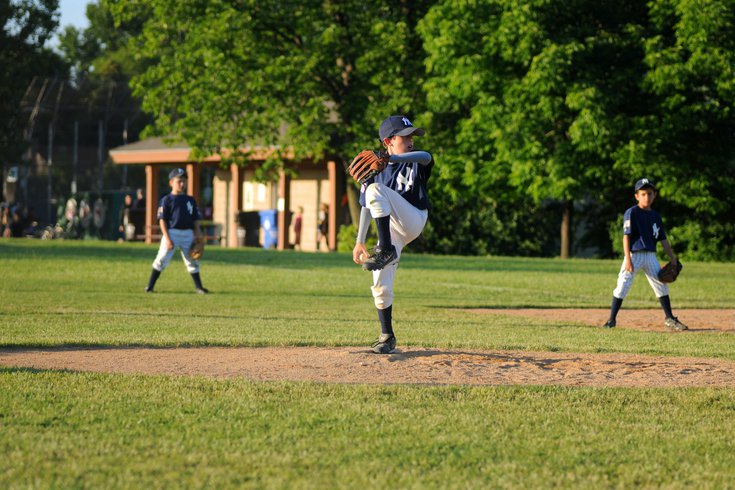
June 29, 2020
 Ben Hershey/Unsplash.com
Ben Hershey/Unsplash.com
Pediatricians stress the importance of physical activity amid the COVID-19 pandemic. But as youth sports resume, they urge athletes to make health and safety their top priority.
Sports are returning – but not without questions.
How safe are youth athletics compared to other activities that are resuming, like dining out or visiting the beach? And how easily does the coronavirus spread during, say, a soccer game?
"We don't really have good head-to-head data about which activities would confer greater versus less risk of transmission," Dr. Susan Coffin, a pediatric infectious diseases specialist at the Children's Hospital of Philadelphia, said last week. "Really, it's all about what you can do to lower your risk."
The safest option amid the COVID-19 pandemic remains to stay at home and limit exposure to other people, but pediatricians stress the need for children to be physically active. Youth sports can provide that opportunity. But bringing them back requires a balancing act – just like the rest of the reopening process.
CHOP experts have put together a set of recommendations to guide coaches, parents and athletes as youth sports gradually resume in Pennsylvania and New Jersey.
"We didn't want kids to wait until all of the infection risk was gone before becoming active," said Dr. Matthew Grady, a CHOP sports medicine pediatrician. "We want them to stay active the whole time and trying to find ways to allow them to be active in a safe manner was a big part of our policy guidelines."
The guidelines stress frequent hand hygiene, equipment cleaning and distancing on the sidelines and in locker rooms. They particularly stress that anyone with COVID-19 symptoms – or anyone who has had a high-risk exposure – should stay home for 10 days.
Most of the recommendations reflect the guidelines issued by the U.S. Centers for Disease Control and Prevention. But the CHOP pediatricians are encouraging teams to have their players sign a so-called "quaranteam" pledge. Essentially, it's a commitment to limit their exposures to people outside the team and to take a variety of actions to ensure the safety of their teammates.
Among them: Wearing a mask and social distancing in higher-risk situations, conducting a daily temperature check and symptoms assessment, and disclosing any COVID-19 symptoms or potential exposures to parents and coaches.
"We need to make sure that teams and leagues have policies in place, that if people are sick, they need to stay away whether they're coaches, umpires, referees or players," Grady said.
The CHOP pediatricians also encourage a gradual resumption of athletic activities, urging leagues to let community infection rates color their decisions. As infection rates fall, higher-risk activities could gradually resume.
Individual sports, like tennis or golf, are relatively safe to resume regular activities – with some modifications to ensure physical distance. The pediatricians suggest team sports resume by initially practicing in small groups and with lower-risk drills.
For instance, soccer players could practice passing the ball back and forth, an activity that requires distance and doesn't require players to touch the ball. Gradually, the size of those groups could increase and eventually include intra-squad practices.
The last element restores competition. Even then, the pediatricians recommend teams play teams within their region. They particularly should avoid playing teams from regions where COVID-19 is spreading at a higher rate.
"We really want to protect our teams as much as possible," Grady said. "I think we're seeing that at the professional level. The same concept would be done at the youth level even though we don't have quite the same resources as the professional athletes do."
Pennsylvania is allowing counties in the green phase of its reopening plan to resume recreational games and practices, with some modifications. School sports can resume once the school has adopted a health and safety plan.
New Jersey allowed youth sports to resume modified, no-contact workouts last week. Traditional practices and games are slated to resume for medium-risk sports – baseball, basketball, softball and soccer – on July 6. Football can resume traditional practices on July 20.
As athletes return to the fields, the pediatricians also urged them to be mindful of injuries. Studies have shown that people have been far less mobile during the COVID-19 lockdowns.
Youth athletes will be more vulnerable having limited movement, said Dr. Naomi Brown, a CHOP sports medicine pediatrician. Exaggerated training could increase muscles strains.
"A lot of people don't recognize that we haven't been moving for the last three months," Brown said. "That has led to us sitting around a lot more. That leads to core weakness, to increased hamstring tightness. All of that can put us at more risk of injury."